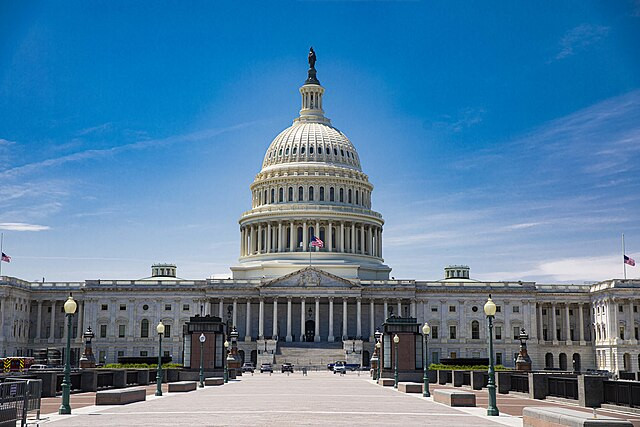Senate Republicans narrowly passed President Donald Trump's sweeping domestic policy bill Tuesday, delivering a legislative victory that pairs $4.5 trillion in tax cuts with deep reductions to Medicaid, food assistance, and clean energy spending. The vote sets up a high-stakes battle in the House, where internal GOP divisions threaten to derail the package before a self-imposed July 4 deadline.
The bill passed 51-50, with Vice President JD Vance casting the tie-breaking vote after three Republicans-Susan Collins of Maine, Rand Paul of Kentucky, and Thom Tillis of North Carolina-broke ranks to oppose the measure. All Democrats voted against it.
"With this legislation, we're fulfilling the mandate we were entrusted with last November and setting our country and the American people up to be safer, stronger and more prosperous," said Senate Majority Leader John Thune of South Dakota following the vote.
The 940-page legislation, dubbed the "One Big Beautiful Bill Act" before Democrats removed the name via amendment, extends the 2017 Trump tax cuts and implements new ones-including eliminating federal taxes on tips-while offsetting costs with $1.2 trillion in spending reductions. These include stricter work requirements for food stamp recipients and expanded Medicaid eligibility limitations.
An analysis from the Congressional Budget Office found the bill would increase the deficit by nearly $3.3 trillion over the next decade and leave 11.8 million more Americans uninsured by 2034.
Despite including a $50 billion rural hospital fund to alleviate concerns about Medicaid provider tax cuts, Collins said her objections went further: "My difficulties with the bill go far beyond that."
The bill also includes a $350 billion allocation for border and national security, partially funded by new immigration-related fees. It repeals billions in green energy credits, a move Democrats argue will undercut renewable investment nationwide.
Passage followed a tense overnight vote-a-rama session, where Thune scrambled to lock in votes from moderates like Lisa Murkowski of Alaska, who secured food stamp protections for her state but saw her Medicaid provisions fall short. She ultimately supported the bill, calling the process "agonizing."
President Trump, departing for Florida during the vote, told reporters: "I don't want to go too crazy with cuts. I don't like cuts."
House Speaker Mike Johnson faces the daunting task of shepherding the Senate bill through a divided House where some conservatives already oppose the Senate's compromises. "The American people gave us a clear mandate, and after four years of Democrat failure, we intend to deliver without delay," Johnson said.
Billionaire Elon Musk publicly condemned the legislation, warning he would campaign against lawmakers who supported it: "Every member of Congress who campaigned on reducing government spending and then immediately voted for the biggest debt increase in history should hang their head in shame!"
Senate Democrats fought unsuccessfully to halt the bill's momentum, introducing dozens of amendments and forcing a full reading of the bill over the weekend. "Republicans are in shambles because they know the bill is so unpopular," said Senate Democratic Leader Chuck Schumer of New York.






